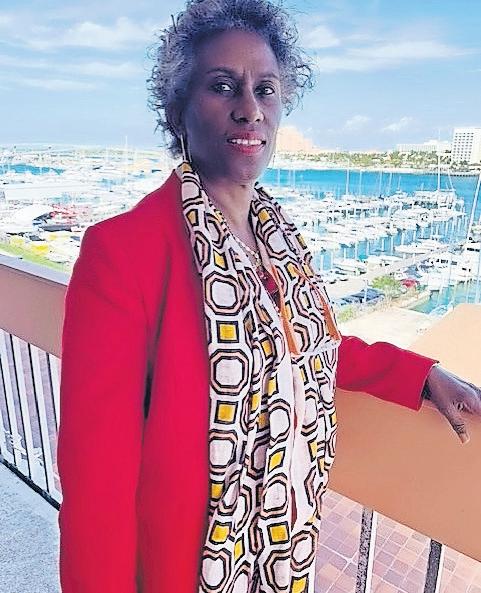
3 minute read
Interview 4
from 08202021 WEEKEND
by tribune242
At the time, she was litigating two matters which she felt would have been good cases for mediation.
“The whole point is that you take the matter out of the courtroom and get both sides to agree. The meditator is there to facilitate a conversation between the two parties where they can agree to a conclusion where no one admits fault or blame, but a conclusion is reached where they can both be satisfied with the final decision,” she said.
Advertisement
“It was after those two cases that I really got interested in meditation and so I was fortunate enough to take additional classes and get qualifications.”
Those qualifications included becoming a fellow of the Chartered Institute of Arbitrators, and in 2014 she obtained an advanced certificate in Trust and Estate Mediation from STEP (the Society of Trust and Estate Practitioners).
Determined to encourage, educate and strive for peaceful and amicable resolutions to conflict, in 2016 she founded ADR Bahamas to provide education and stimulation for non-violent communication and conduct, and provide neutrals to facilitate conflict resolution.
She said that the Bahamas definitely can benefit from more arbitration, especially when one considers just how backlogged the judiciary is and how drawn-out cases tend to be.
“I think though that there has to be more education about the benefits it can have, because a lot of the time people have this idea that they want to have their day in court, but for those people who are willing, it can be a very quick and satisfying processes,” she said.
Arbitration, Caryl said, has definitely changed her mindset.
“It has caused me to look forward and not backward,” she said.
The way arbitration works is that both sides first agree that they are open to the process and that whatever happens during the process will be confidential. “That is important, so that in the event that the matter does not get resolved, one person can’t go before a judge and say, ‘Well, you said that’, or ‘You promised this’. The meditator is a neutral party and is there to ensure that no one gets out of hand and the discussion can take place civilly. Once a decision is reached, both parties sign off on it and then the agreement is presented to a judge,” she explained.
Caryl added that the courts tend to be very favourable towards meditation and in many cases will encourage parties to try mediation before court proceedings.
She also finds that the skills required for meditation can also be helpful in daily communication.
The simple act of fully listening to what another person is saying can lead to more productive dialogue.
This is especially true in the current environment.
Not only are people dealing with the frustrations brought about by the COVID-19 pandemic, but they are also about to enter election season.
“There are a lot of differing viewpoints going around right now, particularly about getting vaccinations. Both sides feel very strongly and believe that they are right, but the key is to remain calm and to be polite in how you communicate and also to be willing to listen to what the other person is saying,” Caryl advised.
One tip she also suggested is to avoid trigger words that will entice conflict. “You want to be careful how you use words such as ‘always’ and ‘never’, like ‘you always do this’ or ‘you never do that’, because that has a negative connotation, especially when you are talking with people who are already frazzled. We need to be very careful of the language that we use,” she said.
Caryl’s civic memberships include the Nassau Chapter of The Links, Incorporated, where she was the charter president; the Public Hospitals Authority Medical Ethics Committee; Elizabeth Estates Children’s Home, where she is a board member; the public education and resource committee on HIV/AIDS, as well as the AIDS Foundation of the Bahamas, where she served as president for five years.
Last, but not least, she is a wife and the mother of two adult sons.





